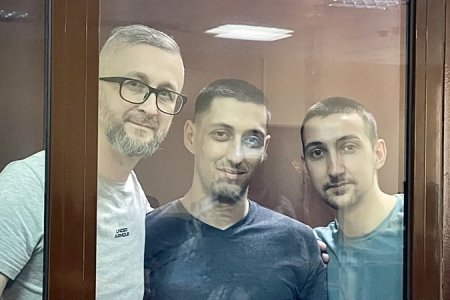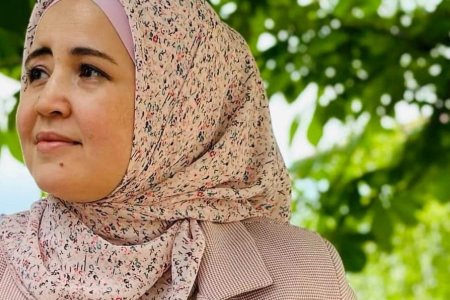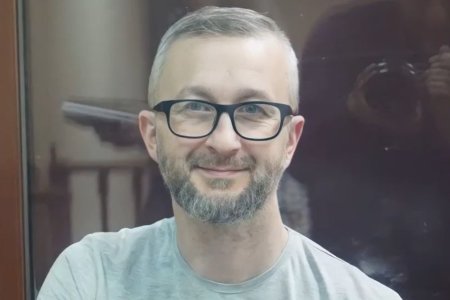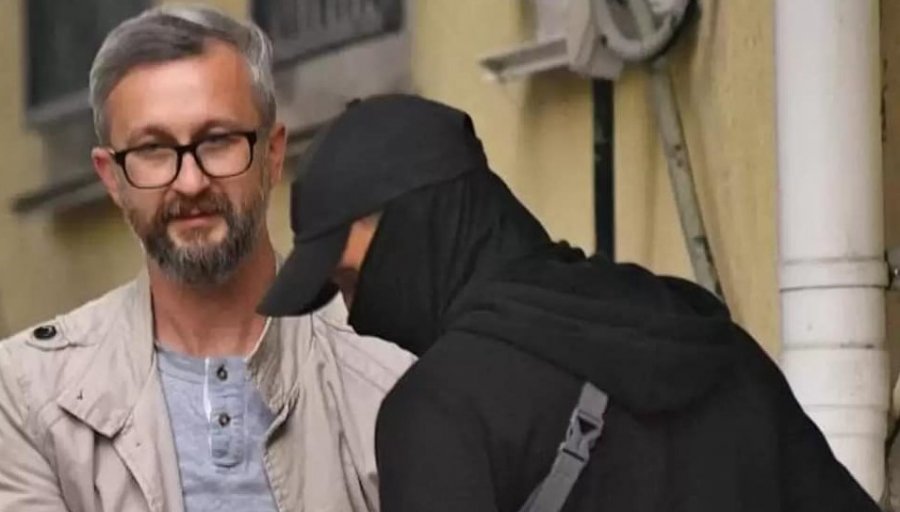
Exactly two years ago, Russia abducted and then arrested world-renowned Crimean Tatar Mejlis leader, journalist and human rights defender Nariman Dzhelyal, civic journalist Asan Akhtemov, his cousin Aziz Akhtemov and two other Crimean Tatars. Although Russia’s offensive against the Crimean Tatar people had begun almost immediately after its invasion and annexation of Crimea, the methods of repression unleashed in September 2021 were on a dangerously new scale. Although the occupation regime had earlier detained Crimean Tatar activists standing in solidarity outside the homes of the latest victims of repression or taking part in totally legal single-person pickets, the mass detentions of family members, friends and simply concerned members of the Crimean Tatar community in the evening of 4 September were unprecedented. 58 Crimean Tatars were detained that day, many violently, with no consideration taken for age or physical condition. They included Asan Akhtemov’s mother, Zarema Akhtemova, who had come to the FSB building on that Sunday evening, desperate to find out where they had taken her son. She was violently pushed into the police van and taken, first to an occupation ‘police’ station, and then to the ‘court’ that fined her for supposed infringement of pandemic rules on wearing masks. Asan’s brother was forced to the ground and taken away, to be jailed for 15 days and also fined, with the occupation ‘police’ claiming and the ‘court’ pretending to believe that he had been guilty of the same pandemic regulations and of ‘disobeying the legitimate demands of an enforcement officer’. Aziz Akhtemov’s father, Eskender was jailed for ten days and fined.
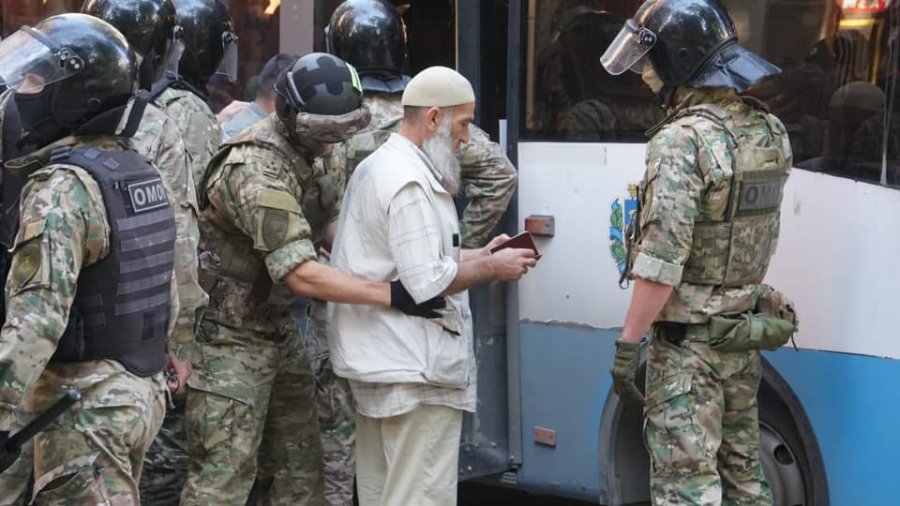
Since then Russia has begun openly persecuting and even imprisoning relatives of political prisoners and others who merely try to be present at or outside purportedly open ‘court’ hearings. By October 2021, Russia had also detained lawyer Edem Semedlyaev and sentenced him to 12 days’ imprisonment for carrying out his professional duties. It has since stripped three other Crimean Tatar lawyers, actively representing political prisoners, of their licence to practise.
Revenge for the Crimea Platform
Nariman Dzhelyal (b. 1980) was the highest-ranking leader of the Crimean Tatar Mejlis [representative assembly] remaining in occupied Crimea following seven years of Russian repression. Although clear that he too was in danger, Russia’s FSB had confined itself to harassment until September 2021.
It was almost certainly the inauguration of the important Crimea Platform international initiative on 23 August 2021 that changed this. Russia had reacted with hysteria to the initiative but could do little but bluster about the high-ranking representatives of 45 countries who attended. The threats that Dzhelyal received if he attended were entirely real, and it took less than two weeks for Russia to exercise its revenge.
Five Crimean Tatars were seized after armed raids on 3 and 4 September 2021. Eldar Odamanov disappeared after the FSB appeared at his home, early on 3 September. Then, during the following night, armed raids were carried out of the homes of Asan and Aziz Akhtemov, and of Shevket Useinov. They came for Nariman Dzhelyal in the morning of 4 September.
After being held incommunicado for three days, the other two men, Odamanov and Useinov, were jailed for 10 and 15 days on absurd charges, quite unrelated to the armed raids on their homes. This was clearly after they had been tortured into providing ‘testimony’ against the others. Here too, however, the FSB miscalculated, as the men refused to be silent and told the ‘court’ how their false testimony had been obtained. It was telling that the prosecution had repeatedly tried to get Odamanov’s ‘testimony’ read out in ‘court’ without him having to be present.
Asan Akhtemov (b. 1989) and Aziz Akhtemov (b. 1996) were seized during the night from 3-4 September. Both were held incommunicado and prevented from seeing independent lawyers until the European Court of Human Rights [ECHR] intervened almost ten days later. The two men immediately retracted their ‘confessions’ and gave shocking accounts of the torture used to obtain this. As well as electric shocks and other physical torture, the FSB had also threatened reprisals against the men’s families.
It was after the two cousins both refused to be silent about the torture they had endured that the charges against them and Nariman Dzhelyal were first increased, with further charges later added.
This was despite legitimate scepticism as to whether there ever had been an act of sabotage on 23 August 2021, while Dzhelyal was in Kyiv at the Crimea Platform. Although the FSB forced the men’s lawyers to sign undertakings, on pain of criminal prosecution, not to divulge any details about the case, it is quite clear that there was never anything to link either Dzhelyal, or the Akhtemov brothers with the minor damage to a gas pipe near Perevalne on 23 August, The entire indictment, with its extraordinary claims, especially against Dzhelyal, was based solely on the ‘confessions’ which the Akhtemovs retracted as soon as they were allowed proper lawyers, and on secret witnesses.
On 21 September 2022, ‘judges’ Viktor Ivanovich Zinkov; Aleksei Viktorovich Kozyrev and Sergei Nikolaevich Pogregniak from the Russian occupation ‘Crimean high court’ sentenced Nariman Dzhelyal to 17 years’ imprisonment; Asan Akhtemov – to 15 years; and Aziz Akhtemov to 13 years, with all in harsh-regime prison colonies. Steep fines were also imposed: 700 thousand roubles (around 9 thousand euros) in Nariman’s case, 500 thousand roubles against Asan and Aziz Akhtemov. The sentence against Dzhelyal was two years longer than that demanded by ‘prosecutor’ Roman Lobov.
These were politically motivated sentences and all of those individuals should be placed under international sanctions, as should the three court of appeal ‘judges’ - Yelena Urod (presiding); German Aleksandrov and Ilona Stohniy – who took just a day and a half before upholding the length of all the sentences, while making the conditions even worse.
The majority of Russia’s Ukrainian political prisoners are Crimean Tatars, with very many of them targeted because of their civic journalism or activism, in particular as part of the Crimean Solidarity human rights movement. Since September 2021, Russia has been openly terrorizing Crimean Tatars, but also using many of the same methods against Ukrainian civilians abducted from other territory that has fallen under Russian occupation, tortured and, sometimes, subjected to grotesque show trials.
